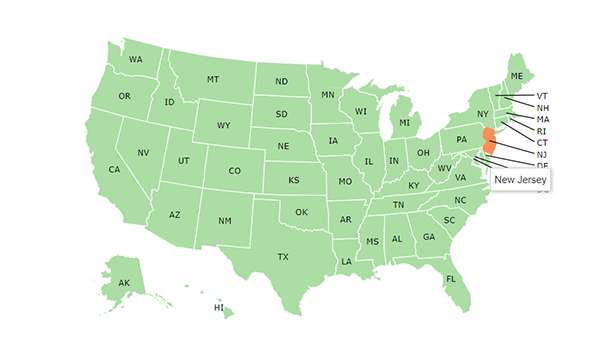Clients Reviews

4.9 / 5 based on 237 user ratings.
Clients Reviews

4.9 / 5 based on 237 user ratings.
We help you to
Does Someone Owe You Money? Recover Monies Owed!
We Research, Prepare, File Your Case in Small Claims Court New Jersey.
The Small Claims Court in New Jersey is a special court that handles disputes involving small amounts of money. It is designed to provide an accessible, inexpensive, and speedy way for individuals and businesses to resolve their legal disputes without the need for an attorney. In New Jersey, small claims cases are heard in the Special Civil Part of the Superior Court. The court can hear cases involving disputes over money, property damage, breach of contract, or other similar issues where the amount in dispute is $3,000 or less. The process for filing a small claims case in New Jersey involves filling out a complaint form and filing it with the court. The defendant must be served with a copy of the complaint, and both parties must attend a hearing before a judge. The judge will listen to both sides of the dispute and make a decision based on the evidence presented.

In New Jersey, any individual, business, or organization can file or defend a small claim in the Special Civil Part of the Superior Court. However, there are some restrictions and requirements that must be met:
It is important to note that small claims court is designed to be accessible to individuals and businesses without the need for an attorney. However, if you are unsure of your legal rights or need assistance in preparing your case, it is recommended that you seek the advice of an attorney or a legal aid organization.
Whether or not you should file a small claims case in New Jersey depends on the specific circumstances of your case. Before filing a small claims case, it is important to evaluate the strength of your case. Consider whether you have sufficient evidence to prove your claim and whether the defendant is likely to dispute your claim. Filing a small claims case requires some time and effort, and there may be costs associated with filing fees and serving the defendant. You should weigh these costs against the potential benefits of winning your case. Consider whether there are other ways to resolve your dispute, such as mediation or negotiation. These options may be less costly and time-consuming than going to court. Ultimately, the decision to file a small claims case in New Jersey should be based on careful consideration of the facts and circumstances of your case. It is recommended that you consult with an attorney or a legal aid organization if you have any questions or concerns about the process.


If you disagree with the judgment of the Small Claims Court in New Jersey, there are a few options available to you:
It is important to note that the appeals process can be complex and time-consuming, and it is recommended that you consult with an attorney if you are considering an appeal. Additionally, if you do not take action within the specified time frames, you may lose the right to appeal or file a motion for reconsideration.
If you win your case in Small Claims Court in New Jersey and the court awards you a judgment, you may need to take additional steps to collect the money owed to you. Here are some options for collecting a judgment in New Jersey:
It is important to note that these collection methods can be complex and may require the assistance of an attorney or a collection agency.
After the judgment is paid in New Jersey, you should receive the full amount of the judgment, plus any additional court costs and interest that may have accrued. Once you have received payment, you should file a satisfaction of judgment with the court to officially close the case. A satisfaction of judgment is a legal document that shows that the judgment has been paid in full. You can obtain a satisfaction of judgment form from the court or from an attorney. Once you have filled out the form, you should file it with the court, along with any additional documentation that may be required, such as proof of payment. Filing a satisfaction of judgment is important because it will prevent the defendant from being able to challenge the judgment or to continue to accrue interest on the debt. Additionally, it will help to clear your credit report and remove any negative marks associated with the judgment. If the defendant fails to pay the judgment, you may need to take additional steps to collect the money owed to you, as outlined in the previous answer on "Collecting the Judgment in New Jersey".
Thanks Small Claim Filing. I extremely suggest Small Claims Filing affordable paper preparation solutions for any person who desires quick efficient as well as economical solutions. They do the job and assisted me with my separation as well as my little girl custodianship. Now my divorce is done in 4 months and also I have my child full protection, by the help of God as well as Small Claim Filing.
Small Claim Filing was advised to me by a buddy. I rejoice I took my friend's guidance. I maintained Small Claim Filing and they right away took control of the case. He and his staff maintained me updated, calm, as well as less-stressed offered the situations of the scenario. I trusted Small Claim Filing would steer me in the appropriate direction, as well as I was not wrong. I am much happier with how the case turned out and would suggest them to any person seeking Court.